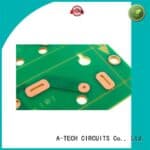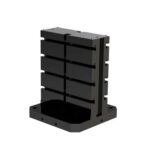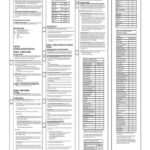Introduction
Altium, a leading provider of electronic design automation (EDA) software, has announced the successful completion of the Service Organization Control (SOC) 2 Type 1 certification for its cloud-based platform, Altium 365. This certification demonstrates Altium’s commitment to maintaining the highest standards of security, privacy, and confidentiality for its customers’ data.
What is SOC 2 Type 1 Certification?
SOC 2 is a globally recognized standard developed by the American Institute of Certified Public Accountants (AICPA). It is designed to ensure that service providers manage their clients’ data securely and protect the interests of the organization and the privacy of its clients. SOC 2 Type 1 certification focuses on the suitability of the design of a service provider’s controls at a specific point in time.
The certification process involves a rigorous audit conducted by an independent third-party auditor. The auditor assesses the service provider’s systems and processes against five trust service principles: security, availability, processing integrity, confidentiality, and privacy.
| Trust Service Principle | Description |
|---|---|
| Security | The system is protected against unauthorized access, both physical and logical. |
| Availability | The system is available for operation and use as committed or agreed. |
| Processing Integrity | System processing is complete, valid, accurate, timely, and authorized. |
| Confidentiality | Information designated as confidential is protected as committed or agreed. |
| Privacy | Personal information is collected, used, retained, disclosed, and disposed of in conformity with the commitments in the entity’s privacy notice and with criteria set forth in generally accepted privacy principles (GAPP). |
Benefits of SOC 2 Type 1 Certification for Altium 365 Users
The successful completion of the SOC 2 Type 1 certification for Altium 365 brings several benefits to its users:
-
Enhanced Security: The certification ensures that Altium has implemented robust security controls to protect its users’ data from unauthorized access, theft, or misuse.
-
Increased Trust: By demonstrating compliance with the rigorous SOC 2 standards, Altium strengthens the trust and confidence of its customers in the Altium 365 platform.
-
Compliance: Many industries, such as finance, healthcare, and government, require their service providers to adhere to strict security and privacy regulations. The SOC 2 Type 1 certification helps Altium 365 users meet these compliance requirements.
-
Competitive Advantage: The certification sets Altium apart from competitors who may not have undergone the same level of scrutiny, giving Altium 365 users an added level of assurance when choosing a cloud-based EDA platform.

Altium’s Commitment to Security and Privacy
Altium has always prioritized the security and privacy of its customers’ data. The company has implemented a comprehensive security framework that includes:
- Encryption of data in transit and at rest
- Multi-factor authentication
- Regular security audits and penetration testing
- Incident response and disaster recovery plans
- Employee security awareness training
In addition to the technical controls, Altium has also established strict policies and procedures to govern the handling of customer data. These policies cover areas such as data classification, access control, and data retention and disposal.
The Future of Altium 365 Security
While the SOC 2 Type 1 certification is a significant milestone, Altium recognizes that security is an ongoing process. The company is committed to continuously improving its security posture and staying ahead of emerging threats.
Some of the initiatives Altium is working on include:
- Pursuing SOC 2 Type 2 certification, which involves a more extensive audit of the company’s controls over a period of time
- Implementing advanced threat detection and response capabilities
- Enhancing its encryption and key management processes
- Providing additional security features and options for Altium 365 users
Conclusion
The successful completion of the SOC 2 Type 1 certification for Altium 365 demonstrates Altium’s dedication to providing its customers with a secure and reliable cloud-based EDA platform. By meeting the rigorous standards set forth by the AICPA, Altium has shown that it has the necessary controls in place to protect its users’ data and maintain the highest levels of security and privacy.
As the demand for cloud-based solutions continues to grow in the EDA industry, Altium is well-positioned to meet the needs of its customers while ensuring the safety and confidentiality of their data.
Frequently Asked Questions (FAQ)
- What is the difference between SOC 2 Type 1 and Type 2 certification?
-
SOC 2 Type 1 certification assesses the suitability of the design of a service provider’s controls at a specific point in time, while Type 2 certification involves a more extensive audit of the company’s controls over a period of time (usually six months to a year).
-
How often does Altium need to renew its SOC 2 Type 1 certification?
-
SOC 2 Type 1 certification is valid for one year from the date of the audit report. Altium will need to undergo the certification process annually to maintain its compliance with the SOC 2 standards.
-
Does the SOC 2 Type 1 certification guarantee that Altium 365 is completely secure?
-
While the SOC 2 Type 1 certification demonstrates that Altium has implemented appropriate security controls, no system can be guaranteed to be 100% secure. However, the certification provides a high level of assurance that Altium is taking the necessary steps to protect its users’ data.
-
Will Altium pursue other security certifications in the future?
-
Yes, Altium is committed to continuously improving its security posture and may pursue additional certifications as needed to meet the evolving needs of its customers and the regulatory landscape.
-
How can Altium 365 users benefit from the SOC 2 Type 1 certification?
- Altium 365 users can have increased confidence in the security and privacy of their data, knowing that Altium has undergone a rigorous third-party audit and has demonstrated compliance with industry-standard security practices. This can help users meet their own compliance obligations and reduce the risk of data breaches or security incidents.






Leave a Reply